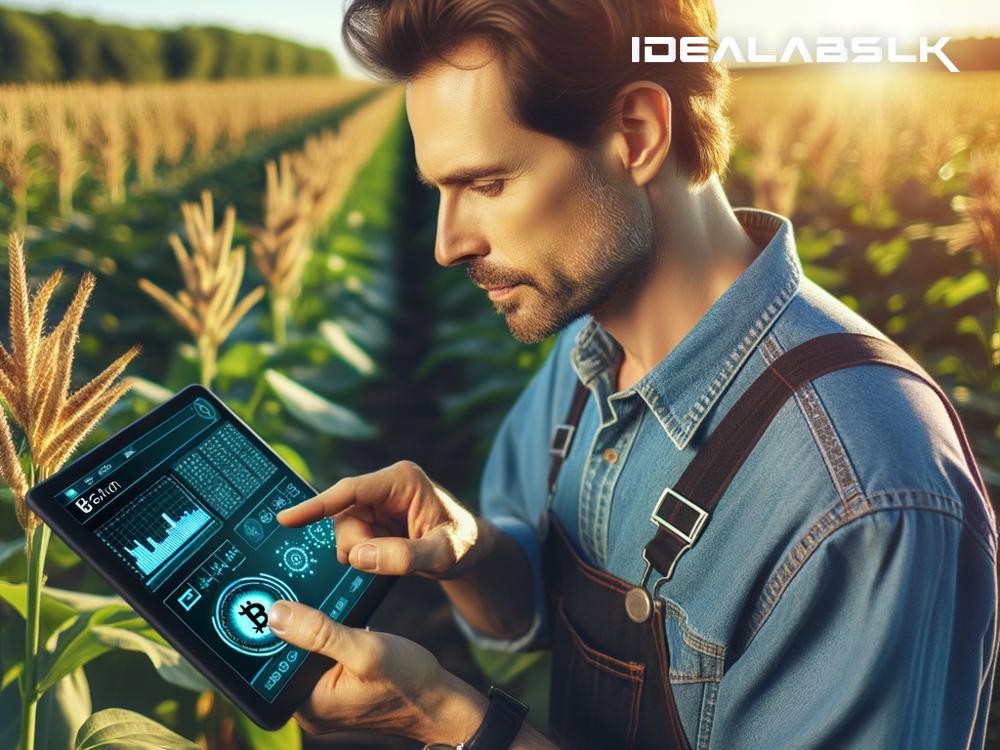Blockchain Technology: A Game-Changer for Local Farmers
In today’s world, where technology is constantly evolving, blockchain has emerged as a revolutionary tool that’s not just about cryptocurrencies like Bitcoin. Interestingly, one of its most compelling applications lies in the agriculture sector, particularly in supporting local farmers’ access to markets. But what does blockchain have to do with farming, and how exactly can it help local growers? Let’s break it down into simple terms.
Understanding Blockchain in Simple Words
Imagine a giant ledger or a record book that is shared among a network of computers. This ledger keeps track of transactions or information exchanges, making sure that every entry is secure, transparent, and tamper-proof. Once a piece of data is added, it cannot be altered or deleted secretly, making the whole system extremely trustworthy. This is the essence of blockchain technology.
The Plight of Local Farmers
Local farmers are the backbone of our food supply chain, yet they often face significant challenges in getting their produce to markets. These challenges include lack of information on market prices, inability to prove the authenticity of their products, and issues with getting fair payment. Moreover, many farmers are unable to connect directly with buyers, forcing them to go through intermediaries, which can decrease their profits significantly.
How Blockchain Can Help
1. Direct Connection Between Farmers and Buyers
Blockchain can facilitate a direct connection between farmers and buyers, including retailers and consumers. By using blockchain platforms, farmers can list their produce, while buyers can directly purchase from the farmers without needing intermediaries. This direct connection helps in ensuring that farmers get a fair price for their products.
2. Transparent Transactions
Through blockchain, every transaction between a farmer and a buyer is recorded transparently. This means both parties can see the details of the transaction, including prices, quantities, and timings. Transparency builds trust among participants and ensures that farmers are paid fairly and promptly.
3. Traceability and Authenticity
One of the standout features of blockchain is its ability to trace the journey of a product from its origin to the consumer. For local farmers, this means they can provide undeniable proof that their produce is organic, non-GMO, or meets certain standards, thereby fetching a higher price in the market. Consumers, on the other hand, gain access to information about where their food comes from, how it's grown, and its journey to the supermarket shelf.
4. Smart Contracts for Automated Payments
Smart contracts are self-executing contracts where the terms are directly written into lines of code. In the context of farming, once a delivery is confirmed and meets the agreed conditions, payment is automatically released to the farmer. This system minimizes the risk of delayed or default payments and ensures that farmers are compensated promptly for their hard work.
5. Community Supported Agriculture (CSA) Programs
Blockchain enables the development of more efficient and transparent CSA programs, where consumers directly support a farm's operation in exchange for regular produce deliveries. All subscriptions and deliveries are recorded on the blockchain, ensuring fairness and transparency.
Real-World Examples of Blockchain Empowering Farmers
Several initiatives worldwide are already using blockchain to empower local farmers. For instance, AgriDigital, an Australian platform, uses blockchain to help farmers get real-time access to commodity prices and sell their produce directly to buyers. In India, Agri10x connects small-scale farmers with global markets without intermediaries, ensuring better prices and efficiency.
The Future of Farming with Blockchain
While the adoption of blockchain in agriculture is still in its early stages, its potential to transform the sector is immense. By providing an ecosystem that is transparent, secure, and efficient, blockchain can significantly improve farmers’ access to markets and ensure fair compensation for their produce.
In conclusion, blockchain technology presents a promising solution to many of the issues faced by local farmers. By enabling direct market access, transparent transactions, traceability, and timely payments, blockchain can significantly uplift the agricultural ecosystem. As we continue to explore and expand these technologies, the future looks bright for local farmers, providing them with the tools they need to thrive in a challenging market.

